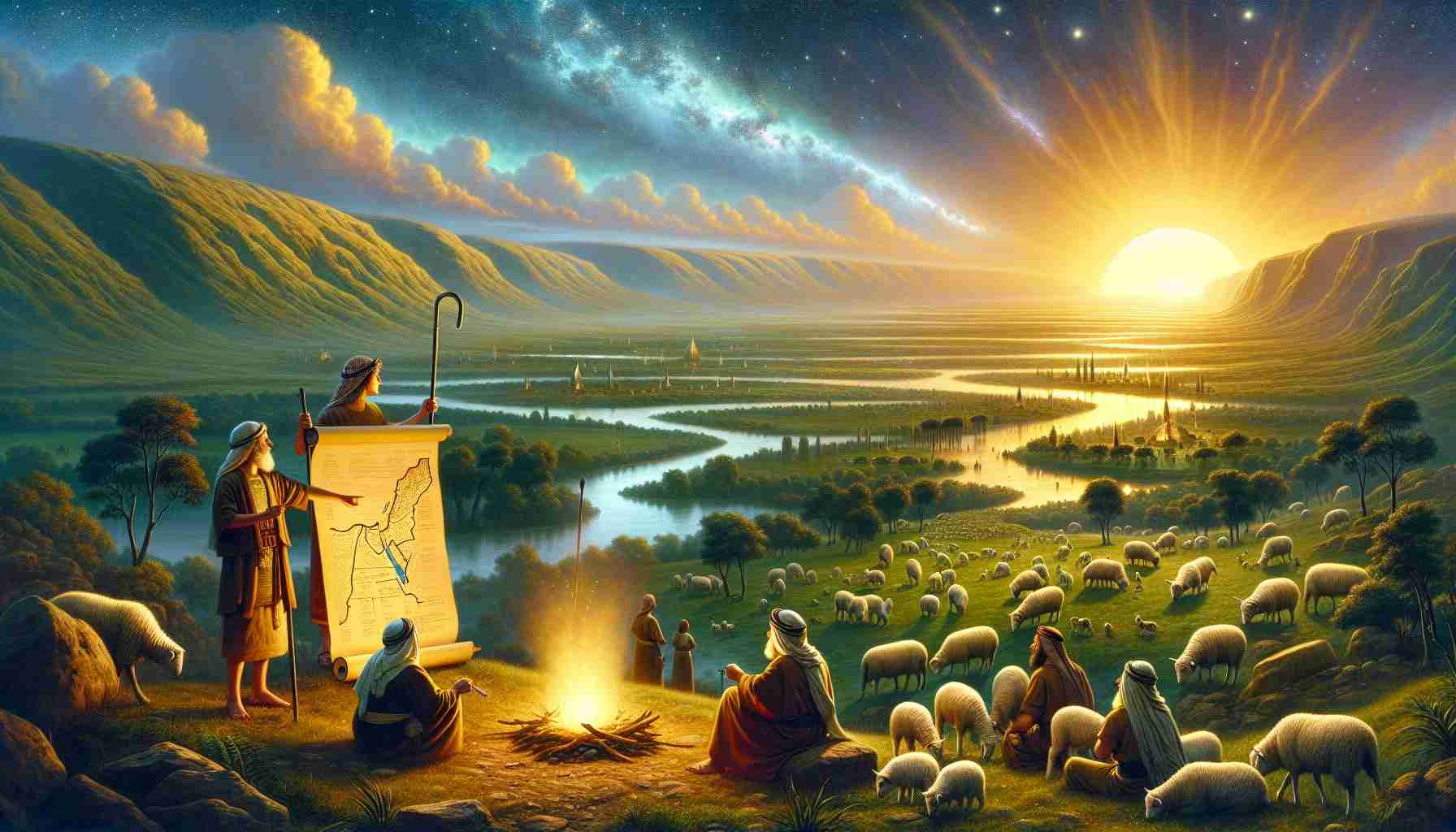

The dust clung to my sandals as I stood just outside the tent of my father, Laban, a leader among the tribe of Gad. I was fourteen, old enough to join in battle, but still young enough to be left out of major decisions. That morning, everything changed.
The elders of Reuven and Gad had walked into Moses’ tent together. Whispers swirled through the camp: They wanted to stay east of the Jordan River. I didn’t understand why at first. We had come all this way from Egypt, crossed the wilderness with God’s hand guiding us, and now, right before entering the Promised Land—Canaan—they wanted to stay behind?
I sat near my father’s fire that night, arms hugging my knees, as he finally returned from the meeting. His face was stern, tired. I summoned the courage to speak.
"Father… are we really not going into the Land with the others?"
He paused. “The land here in Jazer, in Gilead—it’s good for our flocks. Very good.”
“But what about our people?” I asked. “All of Israel?”
He looked at me then, his eyes softening just a bit. “That’s what Moses asked.”
The next day, I followed behind as the men of Reuven and Gad returned to Moses. This time, I stayed close enough to hear.
“We do not ask to avoid the mission,” my father said. “We will build pens for our flocks and cities for our children. But we will not rest here permanently until every tribe has their share. We will cross the Jordan. We will fight.”
Moses studied their faces. “You must keep your word. If you fail… you will have sinned against God.”
Something shifted inside me then. I had thought wanting a different land meant breaking away. But my father’s voice—steady, humble—told another story. They weren’t trying to leave the others behind. They were offering to lead.
Weeks later, I walked beside older warriors from Gad and Reuven. Our sandals struck the dry earth as we crossed the Jordan into Canaan. We were no longer farmers’ sons or shepherds. We were soldiers for all of Israel.
I fought beside men from Judah, Benjamin, and Dan—tribes not our own, but brothers nonetheless. During rest, we shared stories, laughter… grief. In those years of battle, we became one army. One people.
Years later, when we returned east, the land my father chose still felt right. But I never forgot those battles across the Jordan. They taught me that unity wasn’t about land—it was about covenant.
Looking back now, as an old man sitting under my fig tree in Gilead, I understand what my father saw. He wasn't asking for less. He was asking to serve differently. And when I think of his words, and of our promise kept, I know—we didn’t divide Israel. We helped build it.
The dust clung to my sandals as I stood just outside the tent of my father, Laban, a leader among the tribe of Gad. I was fourteen, old enough to join in battle, but still young enough to be left out of major decisions. That morning, everything changed.
The elders of Reuven and Gad had walked into Moses’ tent together. Whispers swirled through the camp: They wanted to stay east of the Jordan River. I didn’t understand why at first. We had come all this way from Egypt, crossed the wilderness with God’s hand guiding us, and now, right before entering the Promised Land—Canaan—they wanted to stay behind?
I sat near my father’s fire that night, arms hugging my knees, as he finally returned from the meeting. His face was stern, tired. I summoned the courage to speak.
"Father… are we really not going into the Land with the others?"
He paused. “The land here in Jazer, in Gilead—it’s good for our flocks. Very good.”
“But what about our people?” I asked. “All of Israel?”
He looked at me then, his eyes softening just a bit. “That’s what Moses asked.”
The next day, I followed behind as the men of Reuven and Gad returned to Moses. This time, I stayed close enough to hear.
“We do not ask to avoid the mission,” my father said. “We will build pens for our flocks and cities for our children. But we will not rest here permanently until every tribe has their share. We will cross the Jordan. We will fight.”
Moses studied their faces. “You must keep your word. If you fail… you will have sinned against God.”
Something shifted inside me then. I had thought wanting a different land meant breaking away. But my father’s voice—steady, humble—told another story. They weren’t trying to leave the others behind. They were offering to lead.
Weeks later, I walked beside older warriors from Gad and Reuven. Our sandals struck the dry earth as we crossed the Jordan into Canaan. We were no longer farmers’ sons or shepherds. We were soldiers for all of Israel.
I fought beside men from Judah, Benjamin, and Dan—tribes not our own, but brothers nonetheless. During rest, we shared stories, laughter… grief. In those years of battle, we became one army. One people.
Years later, when we returned east, the land my father chose still felt right. But I never forgot those battles across the Jordan. They taught me that unity wasn’t about land—it was about covenant.
Looking back now, as an old man sitting under my fig tree in Gilead, I understand what my father saw. He wasn't asking for less. He was asking to serve differently. And when I think of his words, and of our promise kept, I know—we didn’t divide Israel. We helped build it.